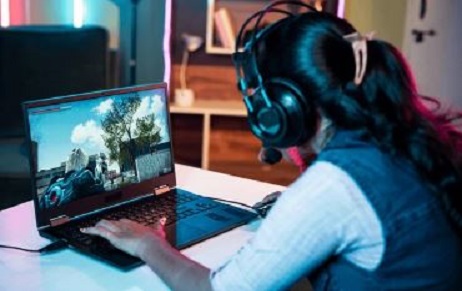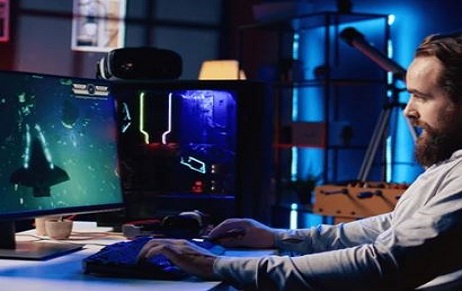Introduction The gaming industry has experienced exceptional growth in recent years, embracing as a crucial…
The Legal Implications of Digital Gaming Assets: Questions Arisen From the Big Bang Theory
Introduction
In a famous episode of the popular Netflix Series, i.e., ‘The Big Bang Theory’, Sheldon Cooper the protagonist faces an unexpected legal predicament when his ‘World of Warcraft’ (a gaming account) is hacked by Todd Zarnecki. Sheldon thereby alleges that his in-game assets, purchased with real money, were transferred without his consent, leading him to consider it a case of ‘Theft’. This fictional scenario raises several substantive legal questions relevant to the status of digital gaming assets, such as:
- Are/Shall the in-game gaming assets be considered as property?
- If classified as property, whether the gaming assets will come under the ambit of intellectual property?
- Do in-game purchases made with real-life money confer ownership in the purchaser of such assets or does it lie with the gaming company who is the creator of such gaming assets due to it being their innovation?
- Can the charges of theft be pressed against the hacker?
The classification of gaming assets as property is a multifaceted and complex issue involving the interpretation of many laws in place. On one hand, these digital items possess value as they are purchased from real money, can be traded on secondary markets, and are also frequently sold for real money, thereby resembling the characteristic of ‘property’. Gaming companies and economists have provided that, in the USA, an estimated $100 Million has been spent on gaming virtual assets in recent years. On the other hand, they are intangible digital representations, which challenges their classification as property in traditional sense.
Are/Shall the in-game assets be considered as a ‘property’?
Despite the lack of a clear legal framework, in order to establish legal protections for virtual property some attempts have been made. The exponential popularity of the virtual assets in gaming has resulted in some real-world mishaps which are exemplified by legal disputes.
A gamer in Shanghai murdered another player for selling a “dragon sabre” item that had been lent to him. The act of violence against a fellow gamer over virtual property is not an isolated incident: in Brazil, a well-known gamer was kidnapped and held at gunpoint to coerce him into disclosing his password so that his account could be stolen. In China, Taiwan, and South Korea, virtual theft and robbery are common criminal cases among players— yet it is interesting to note that their law enforcement agencies treat these as real criminal acts. As a result, these countries are pioneering efforts in developing legal frameworks on virtual property issues that would empower players with actual rights over their digital assets.
Legal Precedents:
In certain countries, the gaming assets were considered as a ‘property’ such as:
- Dutch Court Ruling (2008): The court ruled that items in the game RuneScape were a form of property. It held that they should be treated as property because they could be traded as physical property and possessed value.
- Chinese Court Ruling (2013): While deciding the status of virtual assets of ‘World of Warcraft’, the court held that these shall be considered as ‘property’ as investment via real-world money is involved.
However, in the US, opinion of the court was contradictory to the above-mentioned precedents:
- US Court Ruling (2010): In contrast, the US court ruled that in-game items in Second Life were not property, but rather a medium for play, reflecting a conservative decision.
The above-mentioned cases reveal a lack of consensus among different jurisdictions on the property status of virtual assets used in video games.
In India, according to the Companies Act, the shares are classified as ‘movable property’. Irrespective of their intangible nature, shares can be bought and sold in the marketplace. Shares have a definite economic value and they give a specific set of pecuniary rights to the shareholders. A similar stance shall be followed to the concept of in-game assets as well as they too are intangible but tradable, marketable, and saleable; property, giving ownership rights to the player who purchases such intangible items with real-money.
This view also fits with the broader legal precedent that recognises the worthy intellectual property interests associated with in-game items because of their value and ownership. Game purchases serve as an investment in the same way that shares do – and should therefore be interpreted as such, and be afforded the same legal protections and the rights of ownership.
Besides looking at such in-game assets through the lens of financial assets, these in-game features may also form a part of Intellectual property.
Do In-Game Purchases Made with Real-Life Money Confer Ownership?
In-game purchases made with real-life money, such as microtransactions or loot boxes, have become increasingly popular in recent years. However, whether such purchases grant ownership of in-game items to the player is a subject of debate. This question as to whether the real money purchases within confer ownership rights to players is equally contentious. While there is actual spending of real money on in-game items, it can be contended that the purchases shall be granted ownership rights over such purchased assets as it reflects a financial investment like purchasing physical goods. In order to understand the legal implications of virtual gaming assets, the concept of ownership and possession needs to be examined.

Possession involves the physical control of an item, while ownership on the other hand entails the legal authority to use and dispose-off a property. Possession can be defined in gaming as, a player being able to control items found within the game whereas ownership refers to controlling and disposing of these items legally.
Habbo Hotel (2011): In this case, a US court ruled that players did not own virtual items purchased in the game but only had a license to use them. From this ruling, it can be inferred that purchasing in-game products does not always confer ownership rights, which rely on stipulations outlined by producers of games.
This distinction is important because ownership confers more rights than simply holding a license for example; transferability, saleability, or giftability.
Intellectual Property Angle
Another major issue is whether such in-game assets constitute intellectual property? Generally, intellectual property concerns human creations like inventions; literary and artistic works; and symbols, names used in commerce etc. In case such assets have unique designs and features they might be treated as art pieces done by developers of games.
For instance, Sheldon’s purchase of a virtual sword in one of the episodes of The Big Bang Theory can be seen as an artwork. Its design and properties were created by developers, which makes it both stylish and useful for gameplay. Consequently, since in-game assets qualify as intellectual property, they gain extra, legal shields.
Similarly, in the Habbo Hotel (2011) case, the person purchasing the assets was deemed to be conferred only the license and not the ultimate ownership as the creation of these assets is the intellectual property of the creator of the game, thereby resting the ownership rights with the creator.
Therefore, the established common law approach to consider digital assets as property remains essentially sound. Also, Indian law should not develop an approach which limits the redressal mechanism of a consumer. That would not provide adequate protection to the consumers who purchase the gaming assets with the real money earned by them. Moreover, it would be unsound in principle to distinguish the other digital assets such as Bitcoin and the in-game gaming assets differently as the characteristics are similar. Therefore, to have uniformity, the in-game digital gaming assets should also be considered property and be subject to all the rights that come along with the creation of property
Can The Dishonest Transfer of In-Game Assets Be Considered as Theft?
Under the Indian Penal Code (IPC), pressing charges of theft does not require proving ownership; it suffices to demonstrate lawful possession of the property by the victim. If digital gaming assets are considered property, the act of a hacker taking these assets without the victim’s consent and with dishonest intent satisfies the criteria for theft. Thus, even if the player does not own the in-game assets outright, the mere lawful possession and the unauthorized, dishonest appropriation by the hacker are sufficient grounds for pressing charges of theft under the IPC.
International Examples:
MapleStory (Japan, 2012): A man was arrested for stealing in-game items, demonstrating that digital theft can be criminally prosecuted.
Zynga Poker (UK, 2013): A man received a prison sentence for stealing virtual poker chips, further illustrating that virtual theft can result in significant legal consequences.
World of Warcraft (China, 2013): In this case, a boy was found guilty of theft for stealing virtual assets and was ordered to perform community service. The court recognized the value of the stolen items as they were purchased with real money.
These cases show that theft of in-game assets can be prosecuted as theft and, depending on the circumstances and jurisdiction, potentially treated as robbery.
Conclusion
The episode from ‘The Big Bang Theory’, while fictional, highlights significant legal questions surrounding the status of virtual gaming assets and IP. Recognizing these assets as property ensures they receive the same legal protection as physical assets, thereby reflecting their real-world value and significance to their owners. Also, acknowledging virtual assets as IP aligns legal principles with the realises of modern gaming, promoting security. This ensures that consumers who invest real money into in-game assets are adequately protected.
As legal systems adapt to the digital age, the principles established in cases involving digital gaming assets and intellectual property will likely influence broader applications of property law, intellectual property rights, and consumer protection. This evolving jurisprudence will continue to shape the future of digital asset ownership, providing a more consistent and reliable legal framework for addressing issues like those depicted in The Big Bang Theory.
Author: Alisha Sharda, in case of any queries please contact/write back to us via email to chhavi@khuranaandkhurana.com or at IIPRD.

